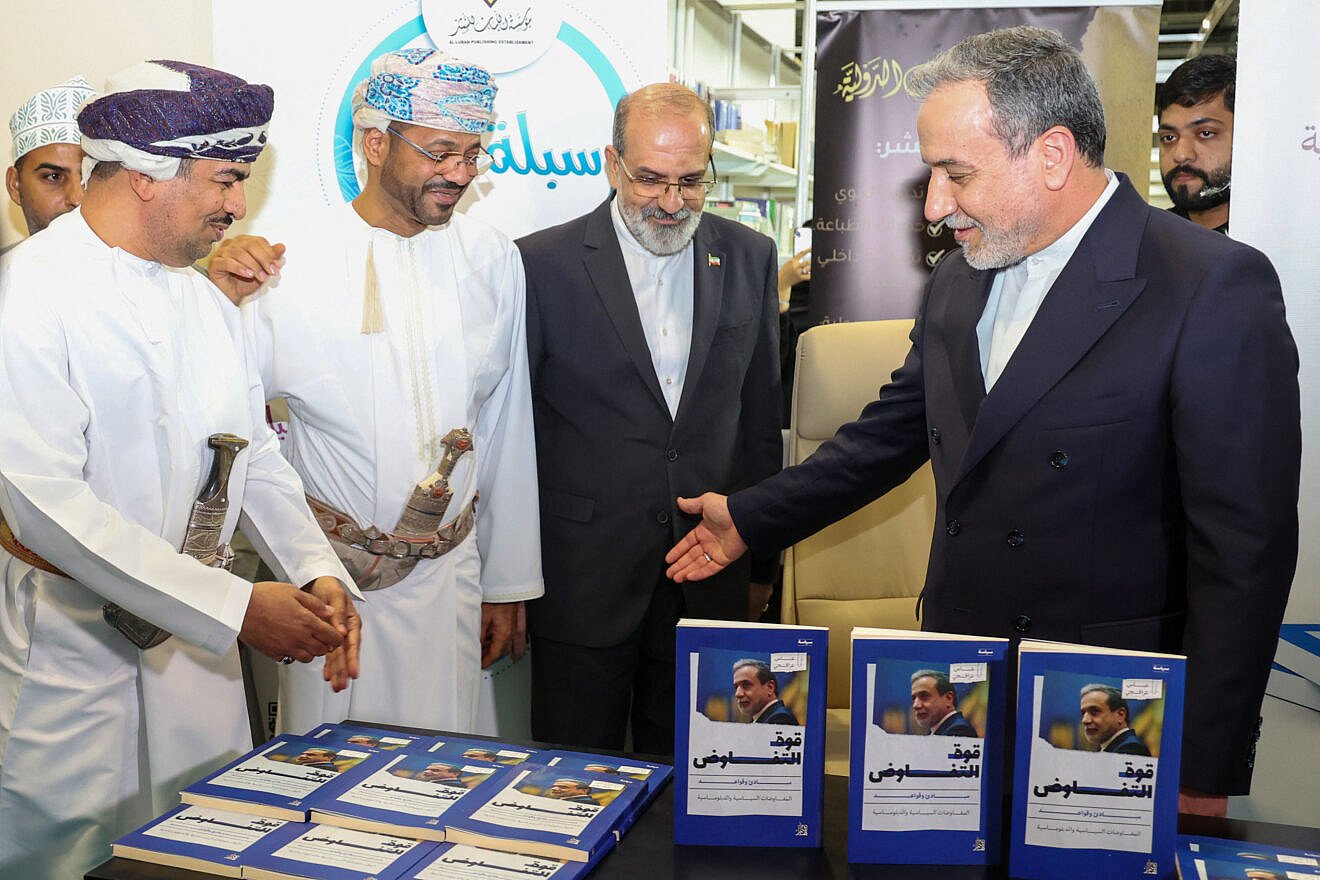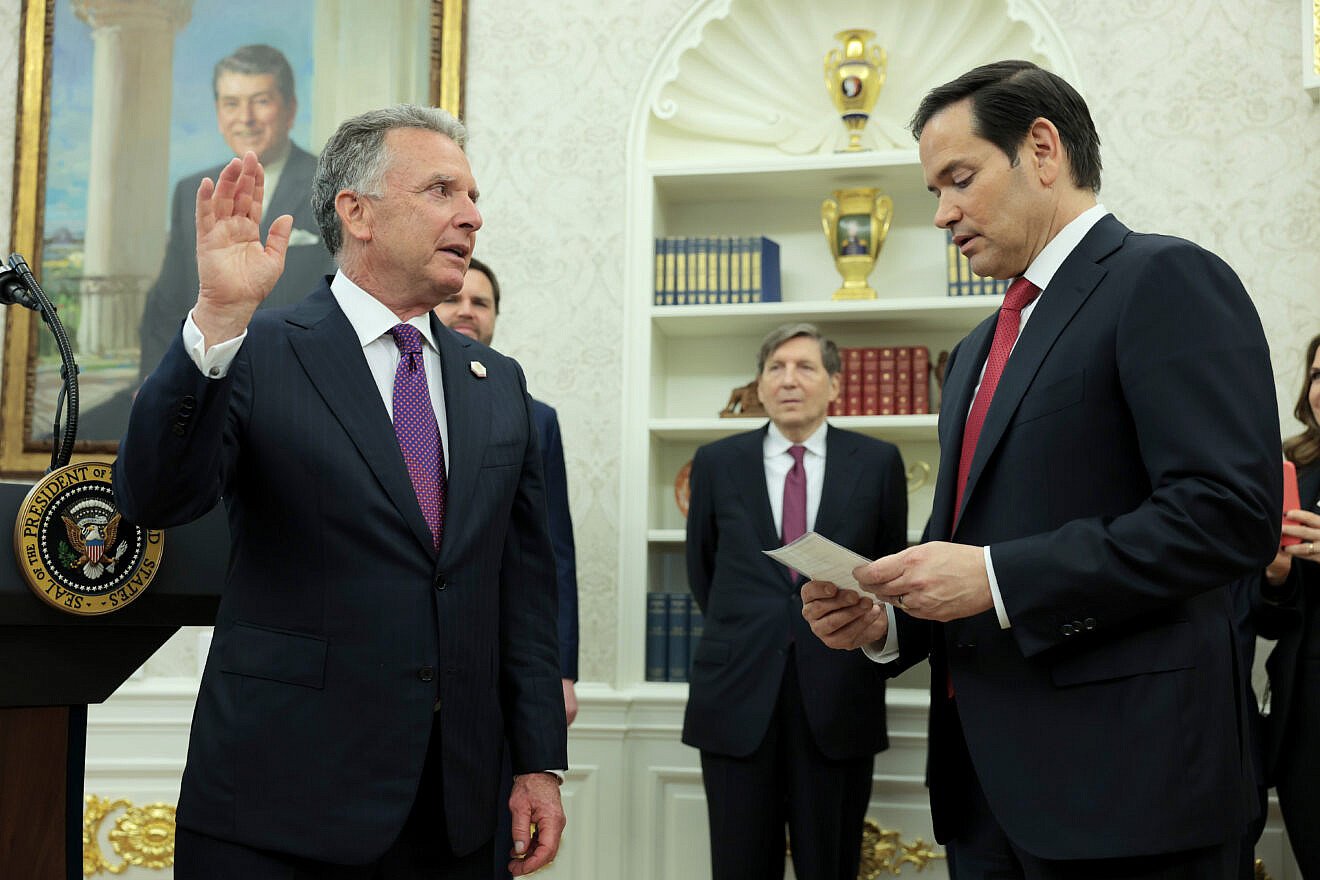by Joshua Marks
Trump envoy Steve Witkoff outlines strict conditions as Tehran vows not to surrender nuclear rights.

Announcing the conclusion of the negotiations on Sunday afternoon, spokesman Esmaeil Baqaei described the meeting as “difficult but useful talks to better understand each other’s positions and to find reasonable and realistic ways to address the differences.”
The next round “will be coordinated and announced by Oman,” he added.
Iranian Foreign Minister Abbas Araghchi said that progress is being made in the discussions, but maintained that the Islamic Republic’s fundamental positions remain unchanged.
“If the goal of the negotiations is to
deprive Iran of its nuclear rights, I state clearly that Iran will not
back down from any of its rights,”
he said during a visit to Doha on
Saturday, where he held talks with Qatari leaders ahead of the meeting.
Araghchi also reiterated that Iran’s nuclear advancements were
reversible—but only if U.S. sanctions were first lifted, a stance
Washington rejects.
Leading the U.S. delegation was President Donald Trump’s special envoy Steve Witkoff, who has laid out a hardline position and warned that the outcome of Sunday’s talks will determine whether negotiations continue.
“We’ve stated our position: The Iranians cannot have a bomb. And they have stated back that they don’t want one. So we’re going to for the purposes of this discussion accept them at their word that that’s actually how they feel. If that’s how they feel, then their enrichment facilities have to be dismantled. They cannot have centrifuges. They have to downblend all of their fuel that they have there, send it to a faraway place and they have to convert to a civil program if they want to run a civil program,” he said.
Witkoff said Iran already has one civilian reactor that could serve as a model for a non-enrichment-based program.
“They have a civil reactor actually in the state of Iran, it’s called Bushehr, and they have no enrichment capability at this place. And so if we take them at their word, why not just turn all the rest of their facilities just like Bushehr? They have no ability to enrich, they have no ability to have centrifuges there. They can only use that facility for civilian purposes—making of electricity, things of that sort,” he said.
“An enrichment program can never exist in the state of Iran ever again, and that’s our red line. No enrichment. That means dismantlement, it means no weaponization, and it means that Natanz, Fordow and Esfahan—those are their three enrichment facilities—have to be dismantled,” the American envoy continued.
Asked whether a new deal could resemble the 2015 JCPOA agreement, Witkoff was unequivocal.
“First of all, we’re never doing a JCPOA deal where sanctions relief precedes fulfilling of their obligations. That doesn’t make sense. That was a mismatched procedure in JCPOA. We believe that they cannot have enrichment, they cannot have centrifuges, they cannot have anything that allows them to build a weapon. We believe in all of that. That was not JCPOA,” he said.
The 2015 agreement also had “sunset provisions” that “burned off the obligations and burned off the sanctions relief at inappropriate times. It’s never going to happen in this deal,” added Witkoff. According to The Wall Street Journal, a key sticking point remains the timing and sequencing of any sanctions rollback, with U.S. officials insisting Iran must first take “verifiable and irreversible” steps.
Pressed on whether he believes Iran is serious about diplomacy, Witkoff responded:
“I’m a rational, sensible person. So I just believe that they have no choice. I mean, obviously they can say no and they can test President Trump. I think that would be an unwise thing to do. I don’t mean that in a confrontational way to them—if they end up watching this show—I mean it as a reality. They can’t have a bomb, and they’ve said they don’t want a bomb. They have attested to it and they’ve said they only want to operate in a civil way.
“There are multiple civil nuclear programs all over the world, and they’re operating without enrichment capability. They don’t need enrichment capability to operate a civil program.”
Witkoff made clear that Sunday’s outcome will dictate the next steps:
“We didn’t think that the talks last week were going to be productive because we needed to get to certain understandings with them. And hopefully this Sunday they will be productive, and hopefully that means that they will continue those talks. If they’re not productive on Sunday, then they won’t continue and we’ll have to take a different route.”
While the talks are currently limited to nuclear issues, Witkoff hinted at broader engagement if Iran changes its behavior.
“Iran—we’re inviting Iran to be a member of the ‘League of Nations.’ We think that they’re an industrious people, smart people, historically savvy, good merchants. I have plenty of friends of Iranian heritage … We’re saying to Iran: You can be a better nation. We can do business with you. We can have strategic relationships with you. But you can’t be a provocator.”
The negotiations on Sunday would be “limited to nuclear,” he said.
“But do we think that they need to stop enabling Hamas, Hezbollah, the Houthis and pulling back from being a provocator? We do believe that. That’s a secondary discussion,” he added.
Reuters reported that the sides remain far apart on core issues, including verification mechanisms, sequencing of commitments, and the future role of the International Atomic Energy Agency. One Western diplomat was quoted as saying, “This round will either pave the way for real progress—or mark the end of the road.”
Witkoff has previously defended the administration’s reliance on diplomacy over force, despite criticism from hawkish commentators.
“I’m very loyal to the president, but I actually believe in his policy, I really do,” he said. “I believe in his policy of attempting to settle the Iranian conflict through dialogue. First of all, that’s a more permanent [solution] to that crisis than any other alternative. That would physically change exactly how Iran was approaching a nuclear program,” he continued.
“If we get them to voluntarily shift away from an enrichment program where they can enrich to not have centrifuges, to not have material that can be enriched to weapons-grade levels—90%—if we can get them to voluntarily to do that, that is the most permanent way to make sure they never get a weapon, and so his prescription for the solution there is the best prescription,” said Witkoff.
“Now hopefully that’s something that they want to do, because, as he says, the alternative is not a great alternative for them,” he added.
Witkoff also denied reports of a rift with Secretary of State Marco Rubio, calling it “total fake news.”

“The secretary of state and I are close friends,” Witkoff said. “We don’t just have a cordial working relationship together. We have a real friendship, a deep friendship, and we confer—we talk all the time. I might talk to the secretary of state five to seven times a day. … We are—there is no daylight between us.”
Witkoff attributed some criticism of his approach to ideological bias.
“I say it’s confirmation bias. They believe, they have a bias toward military interaction. So in their minds anything that is of a military nature to be a solution to that problem, they have a bias toward that. They give no consideration whatsoever on what the consequences are on that. … They may attempt to manipulate me. I don’t think they’re going to be able to manipulate me. … But you’re right: The neocon element believes that war is the only way to solve things.”
Joshua Marks
Source: https://www.jns.org/us-iran-to-resume-nuclear-talks-in-oman/
No comments:
Post a Comment